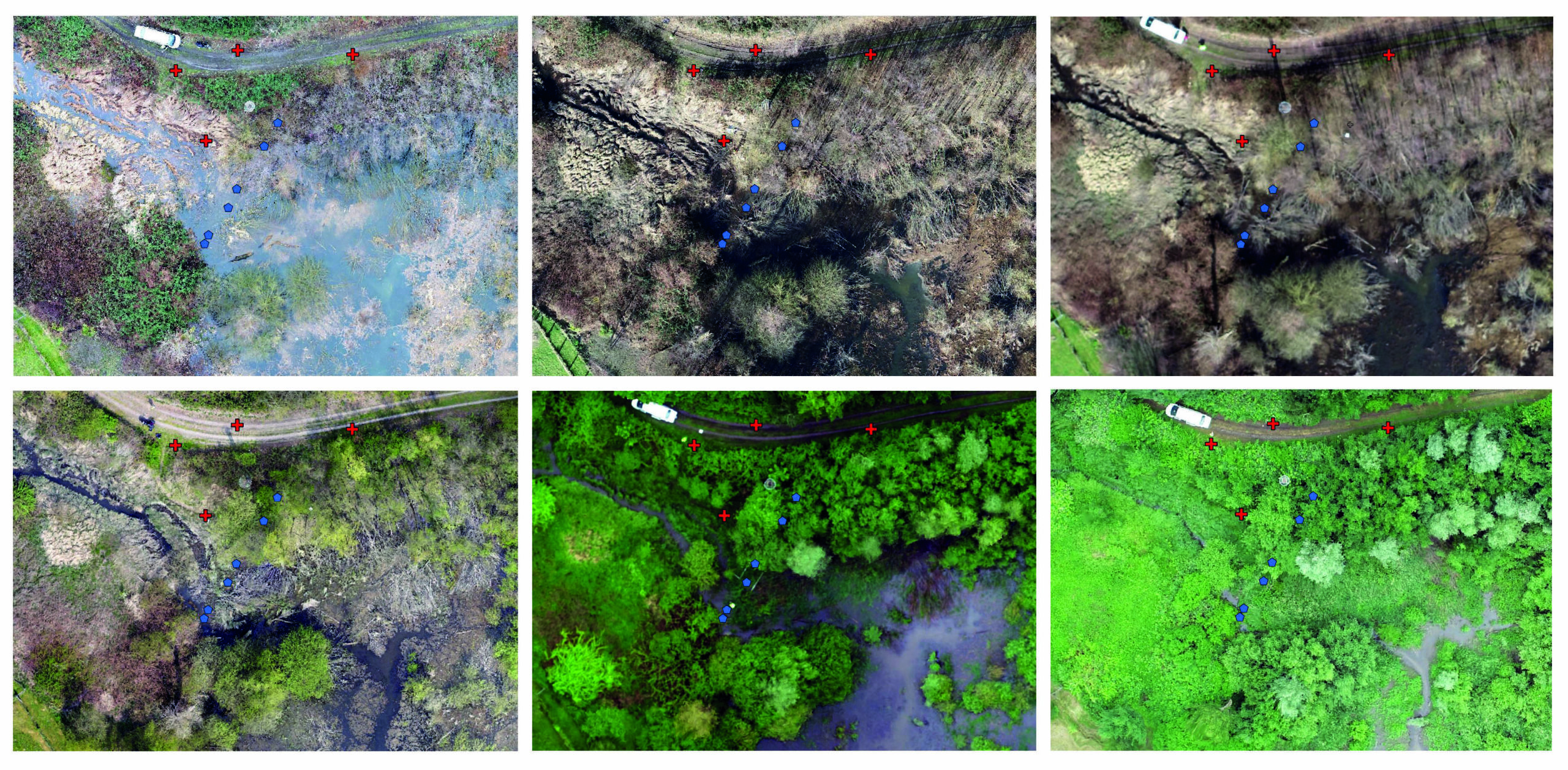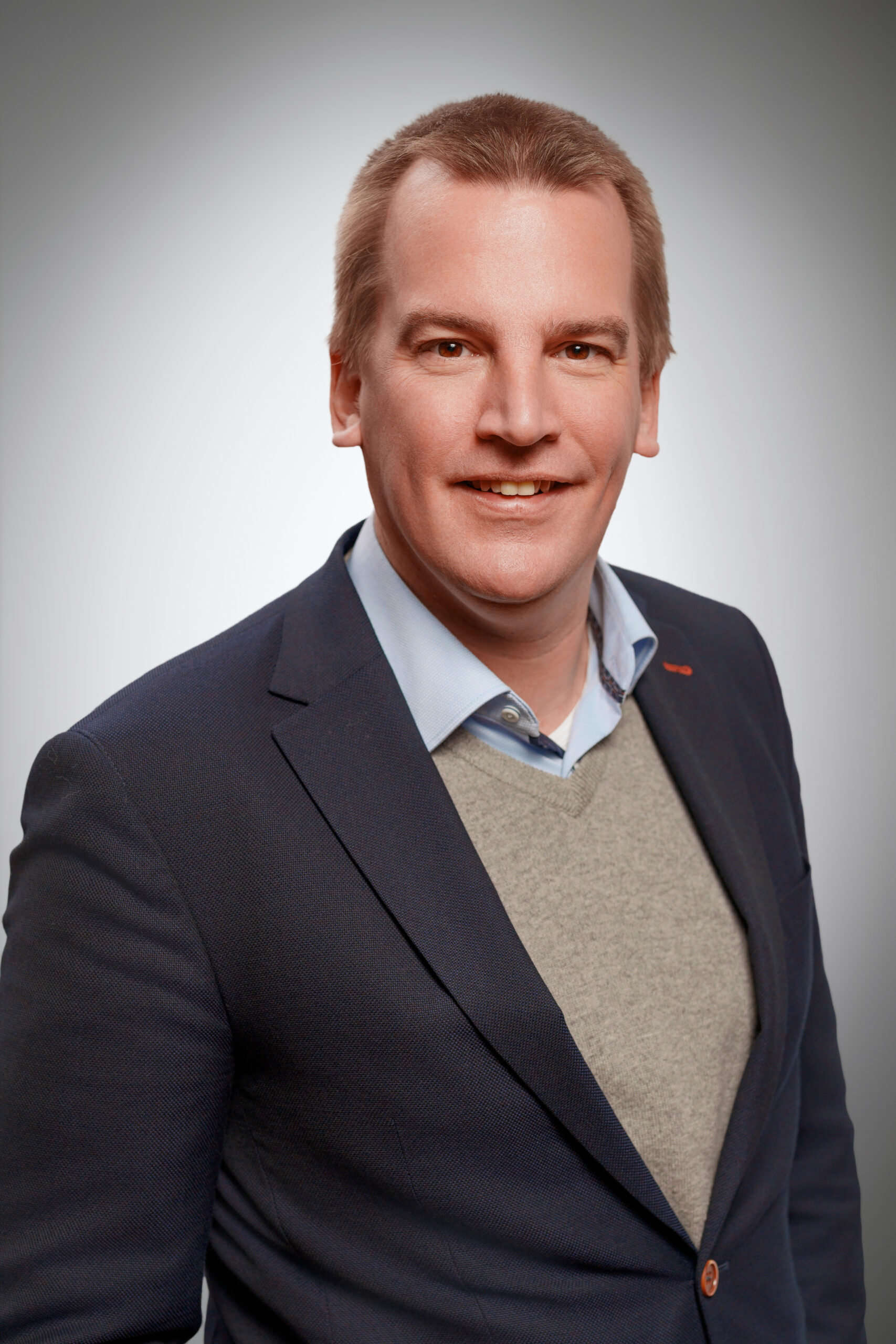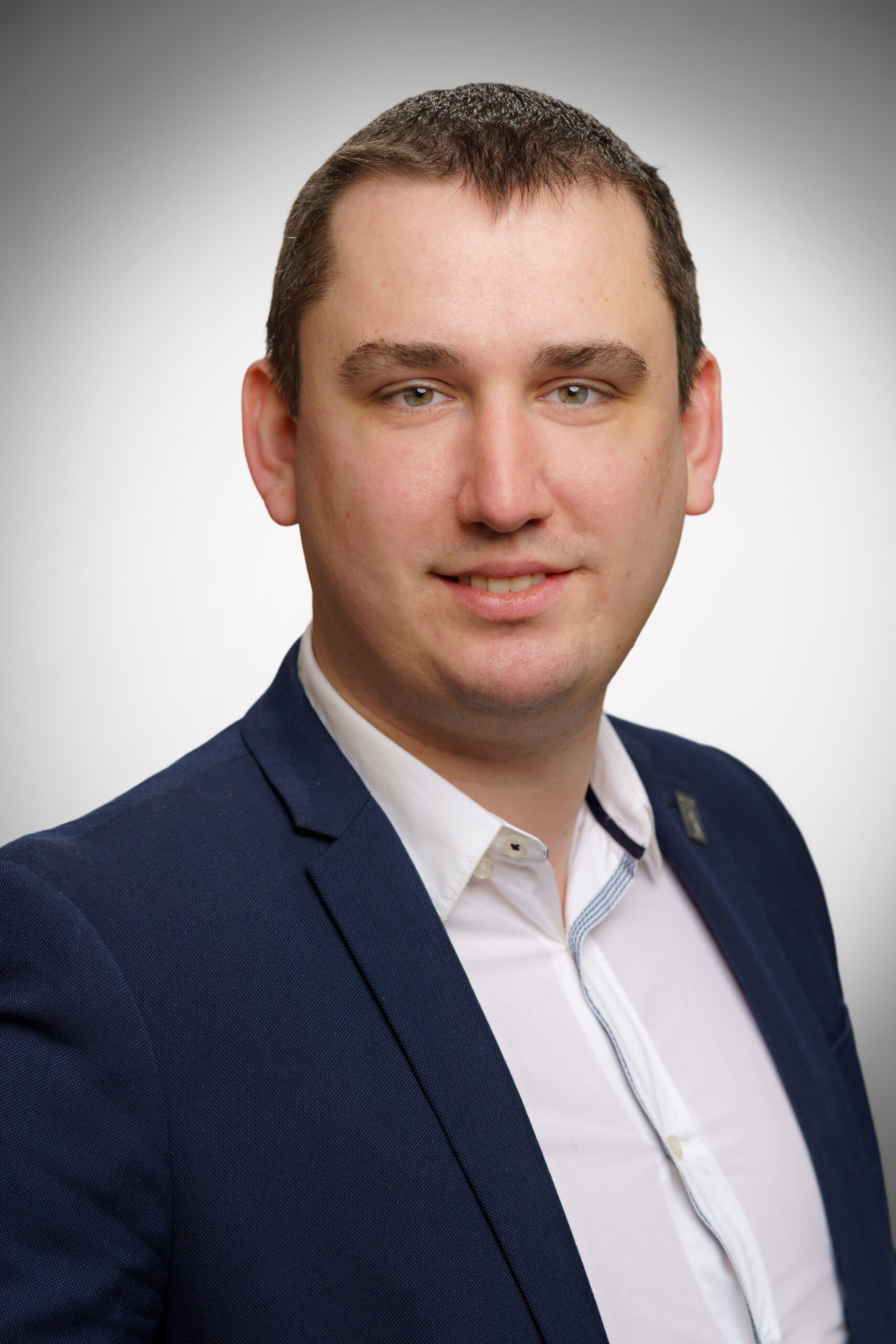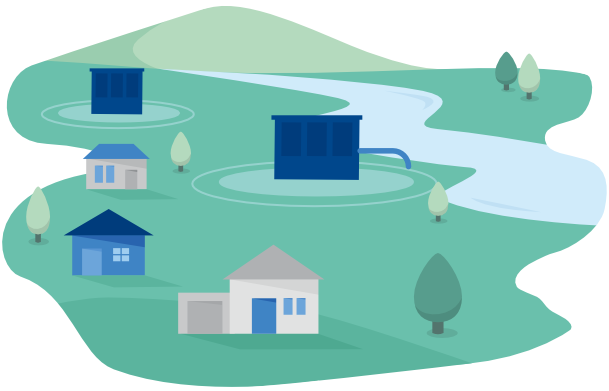MuSE: Multi-sensor geomonitoring for an optimized post-mining watermanagement
Monitor polder areas and make them sustainable
Intensive mining activity has caused the terrain and surface to sink so deeply in places, causing the formation of large depressions – called “polder areas”. In areas such are these, sometimes not all of the waterways can still flow freely. The deeper-lying areas therefore have to be continuously drained to prevent the accumulation of water in rivers and lakes.
These subsidences also change the soil moisture in the region and influence the use of land and resources for agriculture, forestry and water management. This has far-reaching consequences – also because of climate change. Particularly under the impression of periods of drought, the question of a modified management of polder water retention arises. For example, higher groundwater levels and the economic and technical use of elevated groundwater and surface water could minimize drought damage in agriculture and forestry.
In the "MuSE" project, scientists from the FZN are analyzing what an efficient and sustainable realignment of polder management could look like. To achieve this, they are evaluating all available historical, current, and modern Earth observation datasets. They utilize multisensory measurement systems, which they simultaneously fuse and digitalize in a 4D model, with "time" as the fourth dimension.

The water flow of the rivers and landscape development can be well traced over time. These multi-temporal drone images show a nature reserve at the Boye in Bottrop. The blue dots mark the ground sensors, and red markings serve as reference points for aerial imaging. (© THGA)
The RAG-Stiftung is funding the research project in the period from 2021-2024.
Project objectives
- Development of an integrated geomonitoring with the combination of remote sensing data and multi-sensor measurements on site
- Digital modeling with 4D reference
- Recommendations on long-term land and resource use for agriculture, forestry and water management
Contact

Prof. Dr. Tobias Rudolph
Technische Hochschule Georg Agricola, University
Herner Street 45
44787 Bochum
Building 2, Room 101
Phone 0234 968 3682
Mail tobias.rudolph@thga.de

Dr.-Ing. Marcin Pawlik
Technische Hochschule Georg Agricola, University
Herner Street 45
44787 Bochum
Building 2, room 106
Mail marcin.pawlik@thga.de

Dr. Bodo Bernsdorf
Technische Hochschule Georg Agricola, University
Herner Street 45
44787 Bochum
Building 2, room 106
Phone 0234 968 4210
Mail bodo.bernsdorf@thga.de

Prof. Dr. Peter Goerke-Mallet
Technische Hochschule Georg Agricola, University
Herner Street 45
44787 Bochum
Building 2, room 106
Phone 0234 968 3289
Mail peter.goerke-mallet@thga.de




